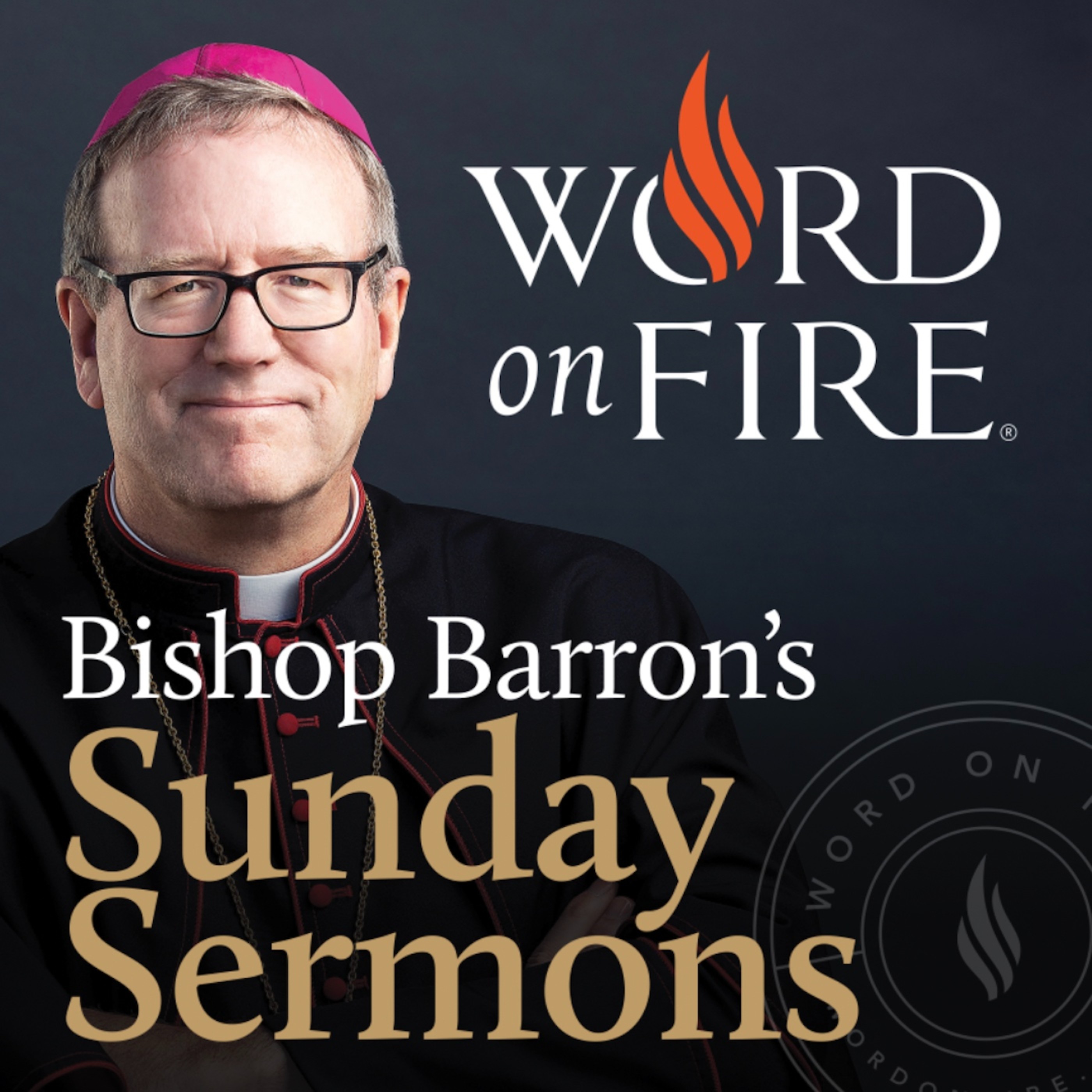

Bishop Barron’s Sunday Sermons - Catholic Preaching and Homilies
Bishop Robert Barron
A weekly homily podcast from Bishop Robert Barron, produced by Word on Fire Catholic Ministries.
Episodes
Mentioned books

Dec 11, 2005 • 15min
To Heal the Brokenhearted
Our first reading for this Sunday is an especially sacred one in the Christian tradition, for it was precisely this passage from Isaiah that Jesus chose to comment upon when he first rose to speak at the beginning of his public ministry. Using Isaiah's imagery, Jesus spells out for us the meaning and purpose of his work: to heal the brokenhearted, to declare liberty to captives, to announce a year of favor from the Lord.

Dec 4, 2005 • 15min
The Gospel of Jesus
In the very first line of his Gospel, St. Mark tells us that he is going to share with us Good News, Glad Tidings, about Jesus, the Son of God. In many ways, the rest of the text is but a playing out of the implications of that statement. In this homily, I explore the meaning of the phrase "Good News" in connection with Jesus.

Nov 27, 2005 • 15min
O How We Need a Savior
Lent is, of course, a penitential season, but Advent is as well. We get in touch with our sinfulness during Advent precisely because we want to prepare ourselves for the coming of a Savior. If there is nothing to be saved from, then there is no point in rejoicing at the arrival of Jesus the Lord. The prophet Isaiah offers us a number of powerful images for sin in our first reading for this Sunday. It behooves us, as an Advent spiritual exercise, to meditate on them.

Nov 20, 2005 • 15min
Peter Maurin and Matthew 25
Peter Maurin, the co-founder of the Catholic Worker Movement, took Jesus' words in our Gospel for today with consummate seriousness. He felt that the corporal and spiritual works of mercy constituted a sort of socio-economic program. Following the exhortation of Jesus, Maurin wanted to create a society in which "it is easier for men to be good." His example is still a challenging and compelling one today.

Nov 13, 2005 • 15min
Burying the Talents
All of us believers have been entrusted with a treasure: our faith. What do we do with this treasure while we await the return of the Lord? We must make it grow, precisely by giving it away. We must evangelize. The very worst thing that we can do is to bury it away in the secrecy of our hearts, endeavoring to "keep it safe." Privatizing the faith is the key to losing it. A challenging message for all of us this week!

Nov 6, 2005 • 15min
The Wise and Foolish Virgins
How do we wait? That is the question addressed by Jesus' parable for today. While we wait for the second coming of the Lord, we should keep our lamps stocked with oil, that is to say, we should pray, study, love, do the works of mercy, and keep vigil. In so doing, we are ready for the arrival of the Bridegroom.

Oct 30, 2005 • 15min
The Trouble With Religion
At its best, religion orients our lives to God and moves us away from the terrible preoccupation with our own egos. But at its worst, religion reinforces the ego and actually blocks our access to God. In his great polemic against the pharisees, Jesus warns us against this dysfunctional side of religious belief and practice.

Oct 23, 2005 • 15min
The Greatest Commandment
"You shall love the Lord your God with all your heart, all your soul, and all your mind--and your neighbor as yourself." This is the way that Jesus summed up the law and the prophets. Finally, it is a matter of love, and the love of God and neighbor are tightly intertwined. I try to illustrate this principle by telling the life of Rose Hawthorne, a woman who loved God precisely by loving some of the most ostracized people of her time.

Oct 9, 2005 • 15min
The Wedding Banquet
God the Father has prepared a wedding banquet for his Son, and we are all invited. That is the poetic summary of salvation that can be found in the parable that Jesus tells this week. The urgent point is this: we must respond to the invitation, and we must don the proper wedding garment. Failure to do one or the other means we miss the celebration.

Oct 2, 2005 • 15min
The Vineyard
In this striking parable of the vineyard, Jesus lays out both God's vision for the world as well as his plan of redemption. The Lord wants us to be fully and dynamically alive, and to assure that this happens, he gives us his only Son as a redeemer. In the course of my homily this week, I try to "decode" this wonderful story.


